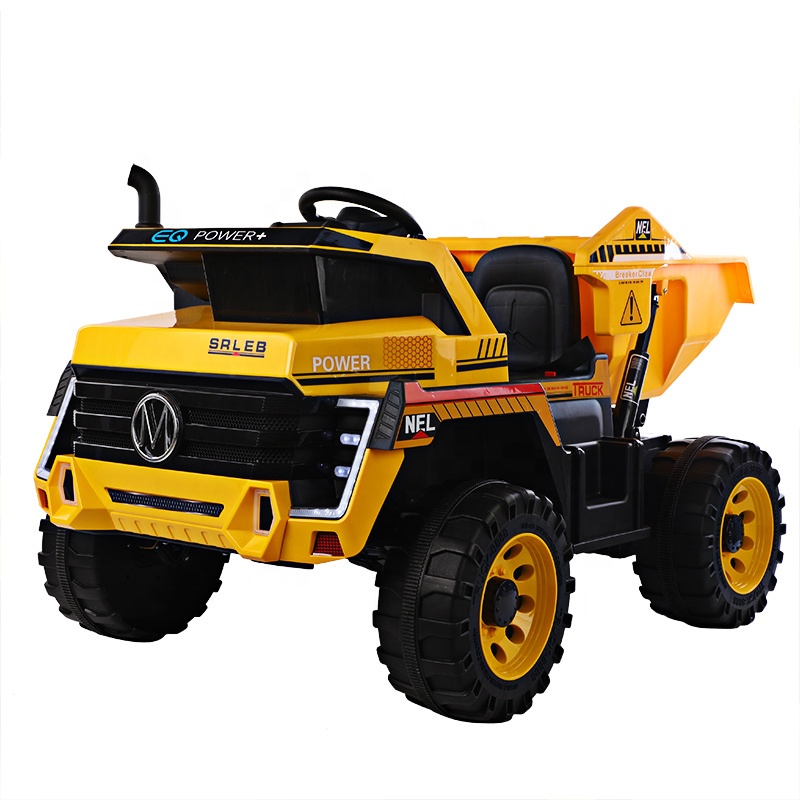CE Certification for Custom Electric Vehicles Designed Specifically for Children and Their Safety Features
CE Certification for Custom Kids' Electric Vehicles Ensuring Safety and Quality
In recent years, the popularity of electric vehicles (EVs) has surged, not only among adults but also in the realm of children’s toys. Custom kids' electric vehicles, ranging from mini electric cars to scooters and bikes, have become a favorite plaything for young ones. However, as these toys increase in demand, so does the need for safety and regulatory compliance, which is where CE certification comes into play.
CE marking, which stands for Conformité Européenne, is a certification that signals compliance with European health, safety, and environmental protection standards. For manufacturers, obtaining CE certification is crucial as it legitimizes the product for sale within the European Economic Area (EEA). This certification involves a rigorous assessment process that evaluates the design and construction of the electric vehicles, ensuring they uphold stringent safety and quality standards.
When it comes to custom kids' electric vehicles, safety is paramount. Young children are particularly vulnerable, and ensuring that products designed for them are free from hazards is essential. The CE marking indicates that these vehicles have been tested for electrical safety, mechanical stability, and other potential risks such as choking hazards or harmful materials. This process not only protects children but also offers peace of mind to parents.
Manufacturers seeking CE certification for their custom kids' electric vehicles must adhere to several directives, including the Low Voltage Directive (LVD) and the Machinery Directive. The LVD focuses on ensuring that electrical equipment is safe to use, while the Machinery Directive addresses any risks related to moving parts. Compliance with these directives is not simply a tick-box exercise; it requires a comprehensive understanding of both the technical specifications and the potential risks associated with the product.
ce certification custon kids electric vehicles

One key aspect of the CE certification process is that it requires thorough documentation. Manufacturers must maintain a technical file that includes design plans, risk assessments, and test results. This documentation serves not only as proof of compliance but also as a useful resource for addressing any future safety concerns. In addition, regular audits by recognized bodies ensure that manufacturers continue to comply with established standards over time.
For custom kids’ electric vehicle manufacturers, the benefits of CE certification extend beyond mere compliance. It enhances the marketability of the product, as many retailers and consumers prefer or even require products to be CE marked. This certification can serve as a strong selling point, bolstering brand reputation and demonstrating a commitment to quality and safety.
As the market for electric vehicles expands, the trend toward customization is also gaining traction. Parents increasingly want unique designs and features that reflect their child’s personality and preferences. However, this customization must not come at the expense of safety. Manufacturers must balance creative design elements with the rigorous safety standards mandated by CE certification.
Consumers should also be educated about the importance of CE marking. When purchasing kids' electric vehicles, parents should actively seek out products that bear the CE mark. This step ensures that the vehicle has undergone appropriate testing and meets high safety standards, providing an extra layer of security for their children’s playtime.
In conclusion, CE certification for custom kids' electric vehicles is not merely a regulatory hurdle but a vital assurance of safety and quality. As children's safety remains a top priority, obtaining this certification helps manufacturers build trust with consumers while ensuring that the products they offer are both enjoyable and safe for their young users. Thus, investing in CE certification is an essential step for manufacturers looking to thrive in the growing market of custom kids' electric vehicles.
-
Best Infant Strollers 2021: Top Choices for Safety & ComfortNewsAug.11,2025
-
Best Infant Strollers 2021: Top Rated & Luxury OptionsNewsAug.11,2025
-
Luxury Infant Strollers: Modern, Premium & Top-RatedNewsAug.10,2025
-
Kids' Powered Ride-On ATVs Manufacturer | Quality & SafeNewsAug.09,2025
-
Best Infant Strollers 2021: Top Rated, Safe & ComfortableNewsAug.08,2025
-
Baby Strollers Factories: Top Manufacturers & Wholesale SuppliersNewsAug.07,2025
